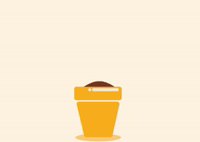Day 1 :
Keynote Forum
Akos Mesterhazy
Cereal Research non-profit Ltd, Hungary
Keynote: Food security and food safety can secure together the survival of mankind
Time : 09:30-10:15

Biography:
Professor Akos Mesterhazy completed his PhD at the age of 34 from the Hungarian Academy of Sciences (HAS) (1979). He was elected to full member of the HAS in 2013. He is now research professor at the Cereal Research non-profit Ltd. He published more than 60 paper in highly reputed Internations Journals with more than 3000 citations. He is serving as an editorial board member of repute for two journals.
Abstract:
Food security was very much stressed, but much less the food safety caused by toxigenic fungi. Toxin contaminated grains has much less or no value. We need the beside the amount of food and feed that they are non toxic. Economic lossed In goes for billions in dollars, in Hungary the 2014 maize sufferd about 300 million USD. The research clarified in maize an wheat that the most important toxin regulating agent is the resistance in both plants. In wheat the resistance to different Fusarium spp. is common, so testing F. graminearum resistance is enough. But this is in maize mostly independent, they need independent tests. The tested pathogens in maize: F. graminearum, F. verticillioides and Aspergillus flavus. More than ten time differences in resistance in commercial cultivars and hybrids were found. About 10-15 % of the hybrids shows good resistance to all species, most are very differring. Besides resistance the measurement of toxins is inevitable. This makes possible to screen wheat and maize for resistance ti toxigenic fungi. As a result susceptible and very susceptible genotypes should not be registered or should be withdrawn fom production. We did not find yield penalty for highly resistant varieties. So their combination with a consequent breeding work is without compromises possible. The breeding phylosophy therefore needs to be updated to correspond to the new challanges both for human food and animal feed safety. I think the the yield maximalization without food safety should be over.
Keynote Forum
Thakur Bahadur Singh Rajut
Indian Agricultural Research Institute, India
Keynote: Development of a decision support system, DOMIS for designing micro irrigation systems

Biography:
Dr. T. B. S, Rajput has completed his PhD from Indian Agricultural Research Institute New Delhi after his M Tech degree from Indian institute of Technology Kharagpur, India. He has over forty years of experience as a research scientist at Water Technology Centre. He is a water management scientist of repute with highest award in Agricultural Research In India, to his credit. He has published over 200 papers, ten books and a large number of Technical Bulletins and extension leaflets. He has guided thirteen PhD and six M Tech students for their research and was awarded as the best teacher by Indian Council of Agricultural Research.
Abstract:
A decision support system namely DOMIS (Design of Micro Irrigation Systems) was developed for standardizing the designs of Drip, Sprinkler and Micro Sprinkler irrigation systems. The decision support system was developed using standard formulae with richness of knowledge and expert opinions. Flexibility and simplicity of use make the DSS DOMIS a superior tool for designing micro irrigation systems. The DSS provides knowledge, expert opinion and necessary data on crops, soil, water and climate in the form of default options at different interactive stages of the software. The DSS also allows the user to make appropriate changes in the parameters provided by the DSS, if the user so desires. DSS-DOMIS suggests most optimal layout plan for main, sub-main and lateral pipes with appropriate sizes of different components including pipes, pumping system, filters and fertilizer application systems. The web based system has been hosted on the net with domain name http://domis.iari.res.in. Besides the design of micro irrigation systems, the DSS provides complete list of concerned State and district officials, approved micro irrigation system suppliers and the general information about the district, different Government schemes and their implementing agencies all over the country. The decision support system will be useful for industry, farmers, students, researchers and policy makers. The DSS is available for use or free on line and the author will appreciate the feed back and suggestions from the users for its further imovement.

